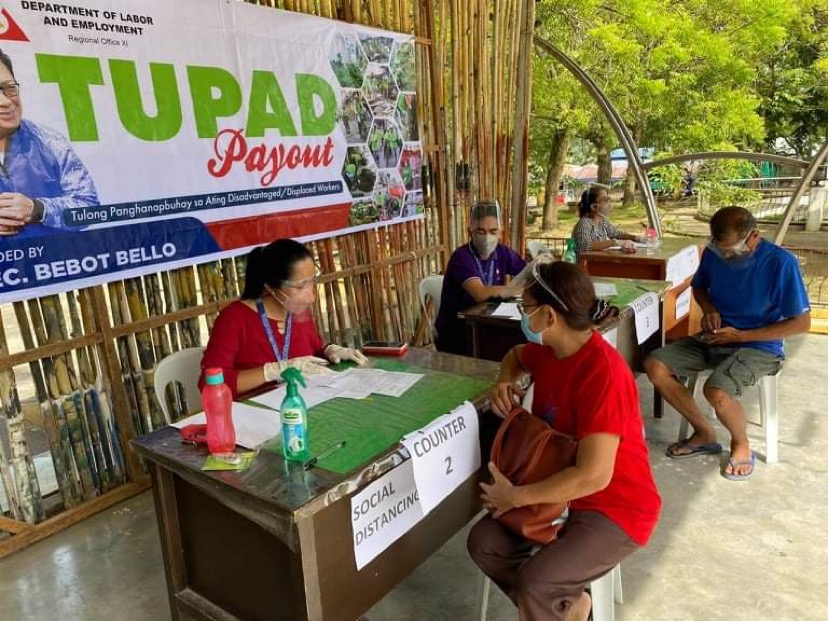- DOLE XI opposes call to abolish Tupad program
THE GOVERNMENT program for displaced or vulnerable workers (TUPAD) in the region is essential and abolishing it will affect the quality of life of some Davaoeños, an official from the Department of Labor and Employment said.
Randolph Pensoy, DOLE XI regional director, opposed a senator’s call to abolish “ayuda” or cash assistance as it only creates a culture of mendicancy.
Senator Joseph “JV” Ejercito told the media on Feb. 29 that it is high time for DOLE and the Department of Social Welfare and Development (DSWD) to create an exit mechanism as continued assistance of the government only fosters the “ayuda” mentality among Filipinos.
Similar to the Tulong Panghanapbuhay para sa ating Displaced/ Disadvantaged Workers (TUPAD), the DSWD is the lead agency implementing the AICS (Assistance to Individuals in Crisis Situations).
“Sa aking, tingnan natin yung long-term, more sustainable programs, livelihood jobs ang tingnan natin in the long term,” Estrada said citing an example the .
TUPAD is a community-based package providing emergency employment for displaced and underemployed workers for a minimum of 10 days and a maximum of 30 days.
The senator stressed that TUPAD workers should be provided with skills development to be eligible for employment in the future.
Meanwhile, AICS provides medical assistance, burial, transportation, education, food, or financial assistance for other support services or needs of a person or family during a crisis.
Ejercito is worried that people might think they no longer need to work since they are receiving assistance from the government.
In response, Pensoy said abolishing TUPAD will ease the workload for DOLE since the profiling of beneficiaries and implementing the program is more complicated than their standard regulatory and monitoring mandates.
With that said, he recognized how the government dole changed the lives of its beneficiaries.
He cited as an example the case of families in the region recently hit by calamities like flash floods, landslides, earthquakes, and fires.
“People need emergency assistance, employment, and livelihood especially since the region was recently hit by a shear line and trough of low-pressure area,” Pensoy said.
“Even if it [assistance delivery] brings us more work, responsibility, and obligation but because we are mandated, we will accept it, at the same time with willingness to cascade the assistance from the national government,” he stressed.

